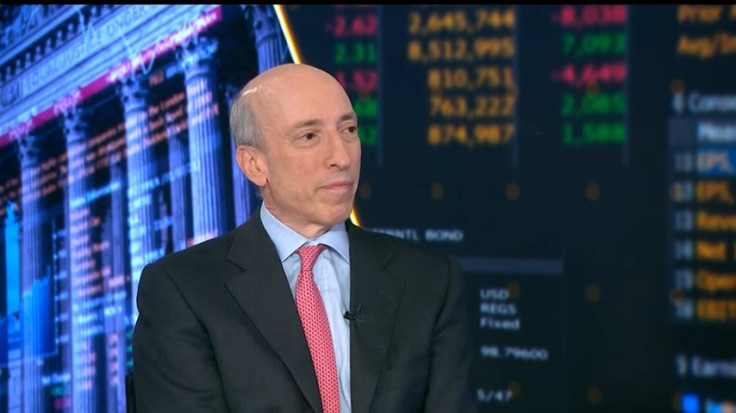
A proposed bill that seeks to establish a regulatory framework for the rising cryptocurrency industry saw overwhelming bipartisan support at the U.S. House of Representatives Wednesday, but the White House isn't too happy about it.
The Biden administration said in a statement Wednesday that it "opposes passage of H.R. 4763, which would affect the regulatory structure for digital assets in the United States." The White House also said the proposed legislation "in its current form lacks sufficient protections for consumers and investors who engage in certain digital asset transactions."
The government did say it was looking forward to cooperating with Congress in reaching a "comprehensive and balanced regulatory framework" for the crypto industry while also "building on existing authorities."
Likewise, U.S. Securities and Exchange Commission (SEC) Chair Gary Gensler had similar sentiments. He said in a statement that federal securities laws have played a critical role in protecting the American public for nine decades.
He claimed that H.R. 4763 or the Financial Innovation and Technology for the 21st Century Act (FIT21) would "create new regulatory gaps and undermine decades of precedent regarding the oversight of investment contracts," arguing further that the bill puts investors and capital markets "at immeasurable risk."
🚨The Financial Innovation and Technology for the 21st Century Act has PASSED the House #FIT21 pic.twitter.com/FYsUWCJ3Yk
— House Committee on Agriculture (@HouseAgGOP) May 22, 2024
The statements came as the U.S. House passed FIT21 with a 279-136 vote that showed strong support from Democrats. It was a significant milestone as Democrats have, historically, expressed skepticism over the crypto sector.
The House Financial Services Committee said after the resolution's passing that it was a "watershed moment for the U.S. digital asset ecosystem." Committee Chairman Rep. Patrick McHenry, R-N.C., said the bill should provide "regulatory clarity" and more robust protections for investors in the crypto industry.
Ahead of Wednesday's vote, at least eight Democrats urged their House colleagues to support the bill, saying in an internal memo that they feel the proposed legislation was a "crucial opportunity" to actually regulate activities in the fast-evolving digital assets market. Among the Democratic representatives who vocally encouraged other House members to vote Yes for FIT21 were Wiley Nickel of North Carolina and crypto "deep skeptic" Jim Himes.
FIT21 passes the House 279 - 136 🎉
— Jake Chervinsky (@jchervinsky) May 22, 2024
House Democrats voting in favor of this bill: 71.
That is a *huge* number of elected Democrats voting "no confidence" in the current SEC, and sending a message to the Biden administration that "anti-crypto" is a losing platform this year. pic.twitter.com/zmlD1VRQfF
For prominent crypto lawyer Jake Chervinsky, the resolution's passage suggests more Democrats have lost confidence in the current leadership of the SEC. He noted that the Democrats who voted in favor of FIT21 were sending a message to U.S. President Joe Biden that an anti-crypto stance "is a losing platform this year."







